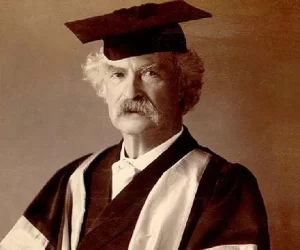
What I Learned from Teaching
Telling is not teaching.
Vocabulary
Early in my career, one day I stayed late after school to finish marking some vocabulary quizzes. As I kept placing very low numbers on numerous quizzes, my frustration grew, and I could feel my ribs squeeze closed. You know if you are a teacher and had spent a great deal of time working hard to convey an idea to students or tried to help them develop a skill they could use for the rest of their lives how it feels to fail. Lots of D’s and far too many F’s. I gathered up the whole bunch of quizzes tried to decide whether to stay in the classroom and enter the quiz grades in the grade book or punishing myself or punish myself and extend my work day by doing that task at home. I took the quiz scores home.
The sun was setting and brushing the sky above the faculty lot a gradient pastel pink. As I unlocked the car, I heard the school football team, and emptiness began to fill my soul. I heard them before I saw them. Ho Bo! Ho Bo! Ho Bo! The school colors encrusting their helmets, they were finishing their Jumping Jacks and they moved to their assigned stations, offensive squad opposite defensive squad. The starters lined up to run a play, a pass to the Tight End. He caught it and in mid-run he stopped and the play was over. No tackling. I saw a number of my students on the team, almost all of whom had not done well on the test. I heard a whistle and saw the team huddle around the head coach. I think he taught physical education, and the marrow of academia that wiggled its way through my bones gave birth to this thought. “Sure. Look at him. Berating some players for not completing their roles and backslapping others who performed well. And look how they kneel before him! A deity in sweatpants before mortals in pads!” His players always showed up for practice, but my students who played for him would stop attending my class once the football season was over. Why should they worry about learning vocabulary when they no longer needed to fret about their eligibility?
I unlocked my car, threw my briefcase into the passenger seat, got in sat down, grabbed my seatbelt as a cannoneer yanking on the firing rope and jammed the belt into its socket. Rammed the keys into the ignition and vigorously turned the key. Latched both hands onto the steering wheel, when, suddenly, as if a cartoon character had whacked me in the back of my head with a large red hammer, I was shocked into reality. “Those kids, his kids, were learning football. My kids were not learning vocabulary!”
As I drove home, I employed a thinking technique that helps me, as the Brits say, “sort things out.” I envision a Socratic dialogue between two real or fictional characters. F. Scott Fitzgerald and Kafka, Hemingway and Captain Ahab, etc. This time it was William Shakespeare and Samuel Clemens, (Mark Twain), crossing on a ferry to a bank on either the River Styx or the River Jordan.


Shakespeare: I dare to say sir, you are royally robed.
Clemens: This old thing? I usually wear it on the porch when I smoke a stogie. Want one?
Shakespeare: So foul a smell that rises from that cigar!
Clemens: I catch your drift. I’ll put away the stogie if you drop the iambic.
Shakespeare: Agreed. Daresay I find your comparison betwixt teaching and playing football distressing.
Clemens: My point is that he was doing everything right, just like every other English teacher in the department. Every Monday he assigned the class twenty words from their vocabulary textbook. Students write the words and definitions in their notebook and write a sentence using the word in context. Tuesday he checked their homework, went over the words pointing out some nuances, and quizzed them on Friday. But, the results were poor. Disheartening to say the least.
Shakespeare: Therefore the supposition is that he should teach them football?
Clemens: Well, sir, I do believe you are missing the point.
Shakespeare: I beg your pardon. I have penned over thirty-eight dramas and comedic performances for the stage, as well as adorned the literary universe with sincere and successful sonnets. I always absorb the elementary point.
Clemens: No offense to you, Bard Boy, but there’s a number of historical inaccuracies in your work, and I kinda heard that there was considerable doubt that you wrote all those things you say you wrote.
Shakespeare: I must tell you, friendly in your ear, sell when you can, you are not for all markets. Your most famous protagonist is a barefooted, ignorant, childish villain who mangles the English language.
Clemens: Well, look it here, my friend, we have considerably drifted away from the centerpiece of our dispute. I am not saying that he should teach football instead of language and literature, but there was a fella named Einstein, he came way after us, and he said the definition of insanity is doing the same thing over and over again and expecting different results.
Shakespeare: That is rather good. So if he, the teacher, is repeating his tactics and strategies, and not getting results…….
Clemens: Bard, old boy, I think you have horse roped the idea.
Shakespeare: But, my humbled hick, though the football coach is more successful than the English teacher, how many of those knaves will earn a living playing a game?
Clemens: As many as will fill the pantry by memorizing and forgetting the definitions of 200 or so words. The kids learn and practice football because there is a reason for them to do so, a context.
Shakespeare: But in teaching the arts and humanities, aren’t we preparing them for adulthood; every human being, king or peasant, has to address the great questions of life, where do I fit into the scheme of the stars, to be or not to be?
Clemens: You do know, my good friend, that “To be or not to be” is not a question.
Shakespeare: Tis true. So where do we go from here?
Clemens: To hell if I did not play my cards right.
Shakespeare: I do hope there is a flagon of wine and a wench awaiting us on the far shore.
Clemens: Wine and a stogie and a porch to watch the sunset each day will satisfy my heavenly desires.
The dialogue ended as I pulled into my driveway, still thinking about my failure, but the anger evaporated as Polley and my four lovable urchins greeted me.
In the next few weeks I asked my colleagues in the English department how successful they were in teaching vocabulary. Almost all of them said they shared my experience. The only instructors that seemed satisfied with the results were the ones who taught honors classes. Well duh! There are honors students so tightly strung to get all A’s that they would sit on an ostrich egg until it hatched if doing so added a fraction of a point to their average. As I later learned from research, most honors students forget almost 90% of the content they crammed for a test within two days. When I taught honors I remember one day walking down the hall between classes, and one of my students yelled out to me. “Hey, Mr. M. I took the SAT’s on Saturday. Five of the words on our vocabulary list were on the test.” “Hey, Aaron, that’s great. That’s five right, yes?” “Maybe. I remember the words were on our list, but I forgot the definitions.”
Early in my career, I discovered R.I.S.E., an institution that gathered research about learning and teaching. I wrote to them and requested research on teaching vocabulary. I received several large envelopes filled with information. The result? No one was successful at teaching vocabulary from arbitrary lists of words and their definitions. Actually, one teacher in a local district claimed success, but to do so students had to spend at least 20 minutes PER WORD to retain any sort of memory of the word. Our vocabulary textbook had four hundred words we were supposed to teach. 400 times 20 = 8,000 minutes which is 133 hours during the school year. Since we have 45 minute classes, that means that teaching vocabulary would prevent teaching grammar or literature or any other language arts skill. The research went on to say that without context, vocabulary lists were useless. So I gave short attention to the vocabulary textbook, even though it was a departmental requirement to use it, and more to vocabulary that appeared in the works we studied. Years later, when I learned how to use databases, I created a database for the English department. Any English teacher could add words from the literature they were teaching to this database, and I constructed several types (fill in the blank, multiple choice, antonyms, etc.) of quizzes, tests, exams, the teachers could generate just by clicking on the words they wanted to be on the test. And they could, with one click, print out an answer key. I could print out several different tests for the same class (to discourage cheating) within minutes. And, as teachers kept on adding words to the database, we had a good thing going from a teacher’s viewpoint. My colleagues liked it because the vocabulary we wanted students to understand had a context and a reason for students to learn that vocabulary.
Unfortunately, I was told by administration to dismantle the vocabulary database. Why? Because the school district administrators were afraid that if parents did not see their children carrying around a vocabulary textbook, they would assume we were not teaching vocabulary. One Parents’ Night I asked the parents of my students if they made that assumption. One mother piped up, “They always say we want things like that. It’s their issue. Not the parents’.” The vocabulary textbook we used for 10th grade was $15.99 each, times 800 students, and the vocabulary texts for grades 11 and 12 were about the same. Do the math. Another example of politics (or imagined fears) winning out over authentic learning.


0 Comments